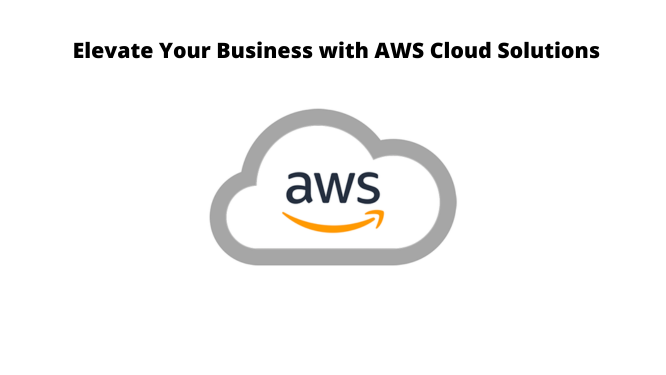Introduction
Amazon Web Services (AWS) has emerged as a dominant force in the world of cloud computing, offering a comprehensive suite of services and solutions that empower businesses to innovate, scale, and optimize their operations. You can become a fully competent AWS cloud professional by successfully completing the AWS Training in Hyderabad course by Kelly Technologies.
In this blog post, we will explore the diverse array of AWS cloud solutions and how they can help organizations of all sizes in achieving their goals.
AWS: The Cloud Powerhouse
AWS, a subsidiary of Amazon, has solidified its position as a leader in the cloud computing industry due to several key factors:
-
Global Reach: AWS operates in multiple geographic regions, providing a worldwide network of data centers. This extensive infrastructure ensures low-latency access, redundancy, and disaster recovery options.
-
Security and Compliance: AWS places a strong emphasis on security and compliance, offering a variety of security tools and features, such as identity and access management, encryption, and monitoring. The platform complies with numerous industry standards and certifications.
-
Elastic Scalability: AWS offers flexible, on-demand resources, allowing businesses to scale up or down based on demand. This scalability is ideal for companies with fluctuating workloads or those experiencing rapid growth.
-
Vast Ecosystem: AWS’s extensive ecosystem includes a wide range of services, including computing, storage, databases, networking, analytics, machine learning, and more. This ecosystem simplifies the deployment of a diverse set of applications and solutions.
AWS Cloud Solutions: A Versatile Toolkit
-
Amazon EC2 (Elastic Compute Cloud):
Amazon EC2 provides resizable compute capacity in the cloud. It allows businesses to launch and manage virtual servers (EC2 instances) to meet specific workload requirements. EC2 is a cornerstone for hosting applications, websites, and databases.
-
Amazon S3 (Simple Storage Service):
Amazon S3 is a highly durable and available object storage service designed for secure and scalable data storage. It supports various data formats, making it suitable for data backup, archiving, content distribution, and serving as the backend storage for web applications.
-
Amazon RDS (Relational Database Service):
Amazon RDS simplifies the management of relational databases. It supports various database engines, including MySQL, PostgreSQL, SQL Server, and more. RDS handles routine database tasks like patching, backups, and replication, enabling developers to focus on application development.
-
Amazon Lambda:
AWS Lambda is a serverless compute service that allows you to run code without provisioning or managing servers. It is ideal for building event-driven applications, and it can be integrated with other AWS services to create highly responsive and efficient systems.
-
Amazon VPC (Virtual Private Cloud):
Amazon VPC allows users to launch AWS resources into a virtual network, isolating resources and ensuring a secure and private cloud environment. VPC is crucial for building customized network topologies and ensuring network security.
-
Amazon DynamoDB:
Amazon DynamoDB is a fully managed NoSQL database service with seamless scalability and low-latency performance. It is well-suited for applications requiring high availability and fast access to data, such as gaming, mobile apps, and e-commerce platforms.
-
Amazon SNS (Simple Notification Service):
Amazon SNS provides a flexible and fully managed communication service for sending notifications via various channels, including text messages, email, and other messaging platforms. It is valuable for notifying users about application events and ensuring timely communication.
-
Amazon CloudFront:
Amazon CloudFront is a content delivery network (CDN) service designed to deliver content, such as web pages, videos, and application data, with low-latency access and high transfer speeds. It enhances the performance and security of applications by distributing content across a network of edge locations.
-
AWS Elastic Beanstalk:
AWS Elastic Beanstalk is a Platform-as-a-Service (PaaS) offering that simplifies the deployment and management of applications. It supports various programming languages and frameworks, allowing developers to focus on writing code while AWS handles infrastructure provisioning and management.
-
AWS Glue:
AWS Glue is a fully managed Extract, Transform, Load (ETL) service that simplifies data preparation and transformation tasks. It allows data engineers and analysts to create data pipelines without the need for managing servers.
Conclusion
Amazon Web Services provides a wide range of cloud solutions that cater to diverse business needs. Whether you’re building web applications, processing large datasets, implementing serverless architectures, managing databases, or optimizing content delivery, AWS offers the tools and infrastructure necessary to thrive in a digitally-driven world. With AWS cloud solutions, organizations can position themselves for success, reduce costs, and deliver cutting-edge solutions to their customers, all while benefiting from the advantages of a robust and reliable cloud platform. AWS continues to shape the future of cloud computing and drive technological advancements across industries.





